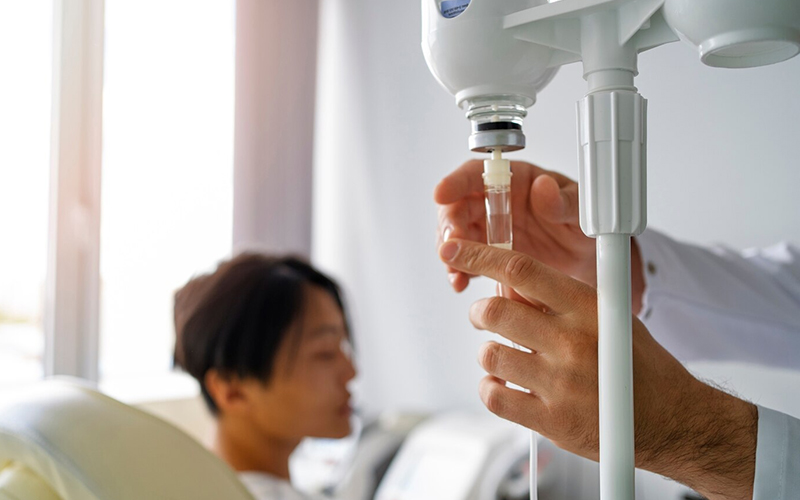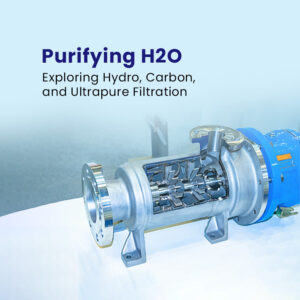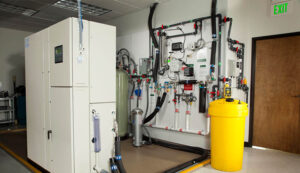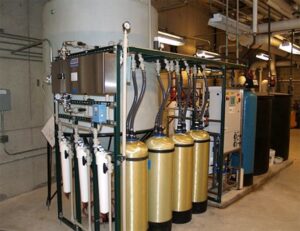Water is a necessary element of life. It exists above and below the land surface and also exists as water vapor in the air. Unfortunately, about 3% of the world’s water is freshwater and only 1.2% of it is drinkable. Water plays a crucial role in the healthcare systems. The quality of the water used in healthcare facilities should be clean and pure to ensure patient safety from contaminants that can cause potential harm to them. Stringent water quality standards in healthcare have made hydro water treatment an essential part of healthcare.
HydroCare is making a mark in providing treatments to enhance water quality in the healthcare system. They are simplifying the water purification system design, installation, and maintenance processes. In this article, we’ll analyze the role of dialysis water treatment systems in healthcare.
Firstly…
You need to understand the significance of water quality in dialysis. There are several treatments that will serve the purpose in meeting the quality standards, these treatments include reverse osmosis, water deionization system and ultrafiltration. Amid complex machinery and calculations that administer dialysis, the quality of water is overlooked.
About 90% of the dialysate solution is water and its quality serves a significant purpose. Here’s why:
Removal of Harmful Toxins
The water used to make the dialysate is exposed to the patient’s blood. If it is contaminated, it is a source of potential harm making the dialysis treatment weak. Even the tiniest bit of contaminants, bacteria, endotoxins and chemical impurities can cause harm to the patient’s health and have an effect on their immune system.
Efficiency of the Treatment
Enhanced water quality makes the dialysis process efficient. The dialysis machine has filters installed in it. Contaminants can clog the delicate filters leading to malfunction or infiltration. This can lead to life-threatening situations such as a suboptimal dialysis session.
Potential Health Risks
Dialysis patients suffer from complex health issues and impure water just worsens their condition exposing them to potential health risks and complications.
Long-Term Consequences
Exposure to bad quality of water for a prolonged period of time can cause health hazards.
Dialysis is a procedure in which people with impaired kidneys are surviving and this procedure relies on the purity of water hence a hydro water treatment is the solution you’ve been looking for.
Benefits of Dialysis Water Treatment Systems
The benefits these treatments provide are:
- Compliance of Industry Standards: Healthcare facilities make sure that the water complies with industry standards and adheres to the requirements that are set by the authorities.
- Enhanced Patient Safety: When the water used for dialysis treatments is pure, the likelihood of the patient being exposed to infection and bacteria becomes less. The end result is enhanced patient safety and effective dialysis treatments.
- Savings: Dialysis water treatment systems may sound a bit pricey but they are beneficial in the long-term. They are an investment that’ll save money on continuous monitoring and maintenance.
- Environmental Benefits: Some treatments are environmentally sustainable; they use less water and energy than standard systems. These systems are more eco-friendly and contribute to a sustainable future.
These treatments become a safe and effective option for dialysis. The high quality of water fulfils all stringent quality standards and is perfect to be incorporated in a dialysate. A dialysis treatment system can suit your demands and give you the best service possible.
How Can You Achieve Pure Water for Dialysis
To meet regulatory standards, water has to go through treatment processes. There are three crucial processes for water treatment; reverse osmosis (RO), deionization and ultrafiltration.
Reverse Osmosis (RO)
It is an advanced filtration process, in which water is pushed through a semipermeable membrane at high pressure. The water molecules then move from a higher concentration to a lower concentration blocking all impurities and contaminants.
Pure water gathers on one side and contaminants are flushed away.
Deionization (DI)
The water deionization system removes ions from water making it a neutral electrolyte. It is used as a conjunction with RO.
Water is passed through a bed of ion-exchange resins, either positively or negatively charged. Positively charged resins attract and remove negatively charged ions, and vice versa. The result is deionized water with a very low mineral content. It is effective in eliminating minerals that can interfere with the dialysis process.
Ultrafiltration
The ultrafiltration process compliments the other two previous processes. Water is passed through a semipermeable membrane with pores of a specific size and then the membrane blocks any impurities of larger particles which may have remained even after the previous processes.
Maintaining Treatment Systems for Dialysis
Maintenance of treatment systems is one of the hardest challenges faced by healthcare facilities. Compromising this aspect will lead to no good. Here’s how you can achieve maintenance:
- Continuous water quality testing and routine inspections play a huge role in enhancing the quality of water.
- Filters need to be replaced at the right times.
- Training and educating the staff on how to use the treatment systems.
- You’ll need an emergency response plan to tackle situations.
- Regularly upgrade the system and replace what is necessary.
- Follow regulatory standards.
- Sanitize the machinery.
- Calibration and adjustment.
- Have a remote monitoring system and alarms setup.
Choosing the Right Dialysis Water Treatment System
Learn how to make an informed decision to choose the right treatment system.
Water Quality Requirements:
Consider the maximum allowance of impurities in water. Identify the quality standards and align with them.
Quality of water from the source:
The design and capacity of the system can be impacted by hardness, minerals and contaminants in the water therefore assess the quality of water coming from the source.
Capacity and Flow rate:
The system should be able to meet the required flow rate and cater the capacity of your healthcare facility. Consider future expansion plans.
System Configuration:
The systems come in different designs. You’ll have to look for the one that addresses your needs accordingly.
Purification Technologies:
The compliance of water purification technologies to cater the required needs and their ability to remove impurities needs to be evaluated.
Operating Costs:
Consider the long-term operating costs and features that minimize expenses.
Monitoring and Control:
Consider remote monitoring and automation. It can help you maintain water quality and allow quick response to any setbacks.
System Compliance and Certification:
The system needs to be in compliance with industry standards. Also, look for certifications and validations from authorities.
Reliability and Service:
The reputation of the manufacturer should be reliable. Thoroughly analyze their track record in customer satisfaction.
HydroCare – Making the Mark
Ensuring patient safety is paramount therefore healthcare facilities need to treat the water to meet quality standards. Water used in dialysis should be free from harmful bacteria and harmful contaminants. This is necessary to reduce risks in patient health.
HydroCare is committed to excellence and quality in water treatment. They produce state-of-the-art dialysis water treatment systems to cater the needs of a healthcare facility. For dialysis water treatment systems their services include:
- Consultation and Layout, Installation
- Procurement of Systems
- RO and Wallbox Installations
- Distribution Loop Plumbing
- Water Treatment System Installations
- Concentrate Mixing Systems Installations
- Water Purification System Maintenance and Repair
Choosing the right company for the treatments is necessary. Their machinery should be in compliance with industry standards and have a reputable image in the market. Hydro water treatment has changed the way healthcare facilities purify water. Healthcare facilities have shifted from traditional purification methods to these latest technologies with more advances to come in the future.




